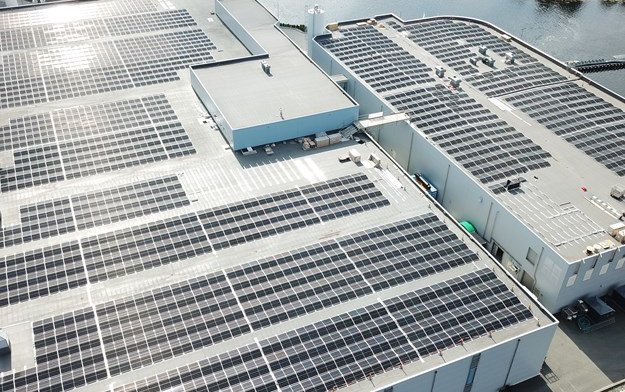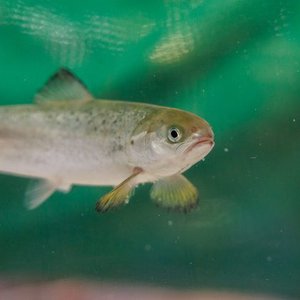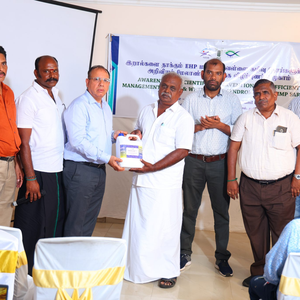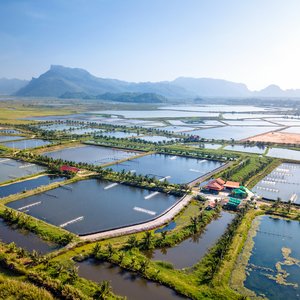Lerøy’s plant at Kjærelva is a RAS facility where 99% of the water is reused. Despite using so little water, a lot of electricity is needed to maintain optimal water quality, meaning higher energy consumption than traditional farms.
The facility, which was built in 2017, has a roof that was designed in view of the installation of solar panels. However, according to the company, when the plant was completed in 2019, the cost of installing solar panels was too expensive. Only this year, when the prices fell by more than 50% in February, Lerøy started to invest in rooftop solar panels.
According to the company, solar panels are already running and significantly reducing the energy footprint of the farm. They are saving approximately 1.2-gigawatt hours of electricity each year, equivalent to the annual consumption of around 75 households.
“We generate electricity on our roof, and it is used directly in our production processes, reducing the energy footprint of the fish,” said Svein Nøttveit, technical coordinator for hatchery fish at Lerøy Vest and Sjøtroll Havbruk. “We have 14,000 square meters of roof, so we have to make use of it. With such a large area, solar panels are a really good option.”
“The Lerøy Group has set itself challenging goals about greenhouse gas emissions, so it is really important for us to make use of innovative technology where possible,” said Anne Hilde Midttveit, head of sustainability at Lerøy. “It is great to see that Lerøy Kjærelva has taken action to reduce its carbon footprint. We hope that other companies will be inspired by Lerøy Kjærelva to look for climate-friendly solutions that can be implemented in their operations.”
The installed solar panels have a display that shows how much electricity they are generating and consuming. Nøttveit plans to position the display somewhere prominent at Kjærelva, so everyone can see and care about how much they are producing and consuming.
“That will put the spotlight on reducing energy consumption. Simply focusing on real-time consumption and generation should have an impact. That is both important and a way of saving energy,” Svein said.











